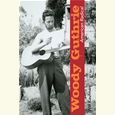Home to the Mountain
In Ronald Kidd’s new middle-grade novel, a boy’s journey leads to understanding
In Lord of the Mountain, Nashville historical novelist Ronald Kidd takes middle-grade readers on a journey that recalls the travels of Huckleberry Finn and Toby Tyler.

Thirteen-year-old Nathan Owens knows his family is different. “We were an unusual group,” he says, “odd to look at, odder still in what we did.” Nate’s father is a preacher whose “Church of Consecrated Heaven and Satan’s on the Run” meets in a mail-order tent. Nate calls the faith, invented by his father, a “strange stew of Jesus and Satan, fishes and loaves, cornbread and Coca-Cola,” complete with laying on of hands, speaking in tongues, and snake-handling. “Daddy’s religion was a do-it-yourself affair,” Nate says. “He took the parts that suited him and ignored the others, like he was shopping for clothes at J.C. Penney.”
Nate’s father prohibits music—what he calls “Satan’s tune”—of any kind. When Nate catches his mother absent-mindedly humming while washing dishes, she’s horrified by her slip. At her reaction, Nate recognizes that “the song was important. It was dangerous. It had to be covered up and tamped down.”
What tune was she humming? Why is it so powerful? Why does his mother—clearly the more grounded and practical member of the family—acquiesce so completely to her husband? These are only some of the mysteries that plague this uncommunicative family whose members must always be on guard, even with each other.
 Nate, on the other hand, loves the little music he’s been exposed to. When a new family moves into the neighborhood, he’s drawn to the forbidden sound of the boy’s radio, “even if Daddy thought it was Satan’s work—or maybe because it was Satan’s work.” Nate meets A.P. Carter and the rest of the Carter family, who had come to Bristol to perform on some of the earliest recordings of country music ever made. Music—along with the machinery used to record and play it—captures Nate’s imagination.
Nate, on the other hand, loves the little music he’s been exposed to. When a new family moves into the neighborhood, he’s drawn to the forbidden sound of the boy’s radio, “even if Daddy thought it was Satan’s work—or maybe because it was Satan’s work.” Nate meets A.P. Carter and the rest of the Carter family, who had come to Bristol to perform on some of the earliest recordings of country music ever made. Music—along with the machinery used to record and play it—captures Nate’s imagination.
It would have been easy for Kidd to make Nate’s father a villain, cold and hard, but from the beginning of the book, readers know that something has damaged him. That “something” is the death of Nate’s sister at age six, when Nate was two. Preacher Owens’s guilt over his daughter’s death and the healing he later felt when Nate’s mother dragged him to a revival meeting combined to create an intense religiosity. It’s not until the end of the book that Nate learns the part music played in this tragedy.
When Nate’s little brother, Arnie, is nearly killed through their father’s fanaticism, Nate has had enough. He runs away, jumping freight trains and spending time in hobo camps. He has run-ins with the law, nearly starves, meets kind people who help him, and finally reunites with the Carters, who take him in. As he searches for the source of the mysterious song he’s heard his mother sing, he uncovers the secret behind his father’s heartbreak, and his aversion to music.
Lord of the Mountain is full of the kind of detail that fans of historical fiction revel in, but these details enhance the story rather than slowing it down. While the answer to the book’s mystery has to wait, as is usual, until the end of the story, its questions are so woven into the fabric of the plot that readers are not likely to lose sight of it.
The members of the Owens family are well-delineated and interesting, from fanatical (but loving) Daddy to the strong and troubled Mama, and especially Nate and his brother, Arnie, who has swallowed his father’s religiosity whole. Some minor players don’t fare quite as well; a character named Gray and his father are stereotypical rich people, and a girl named Sue Dean, while more rounded, seems to exist only to supply a love-interest for Nate. The historical figures, though, especially the eccentric A. P. Carter and his entourage, are particularly interesting. It’s easy to see why Nate would be drawn to these outsiders who share his love of music.
Written in an accessible style sprinkled with touches of humor, Lord of the Mountain is a satisfying read, sure to engage readers of historical fiction, as well as those who don’t normally enjoy reading about the past.

Tracy Barrett is a writer who lives in Nashville. Her most recent book, Freefall Summer, was published in 2018 by Charlesbridge Teen.


